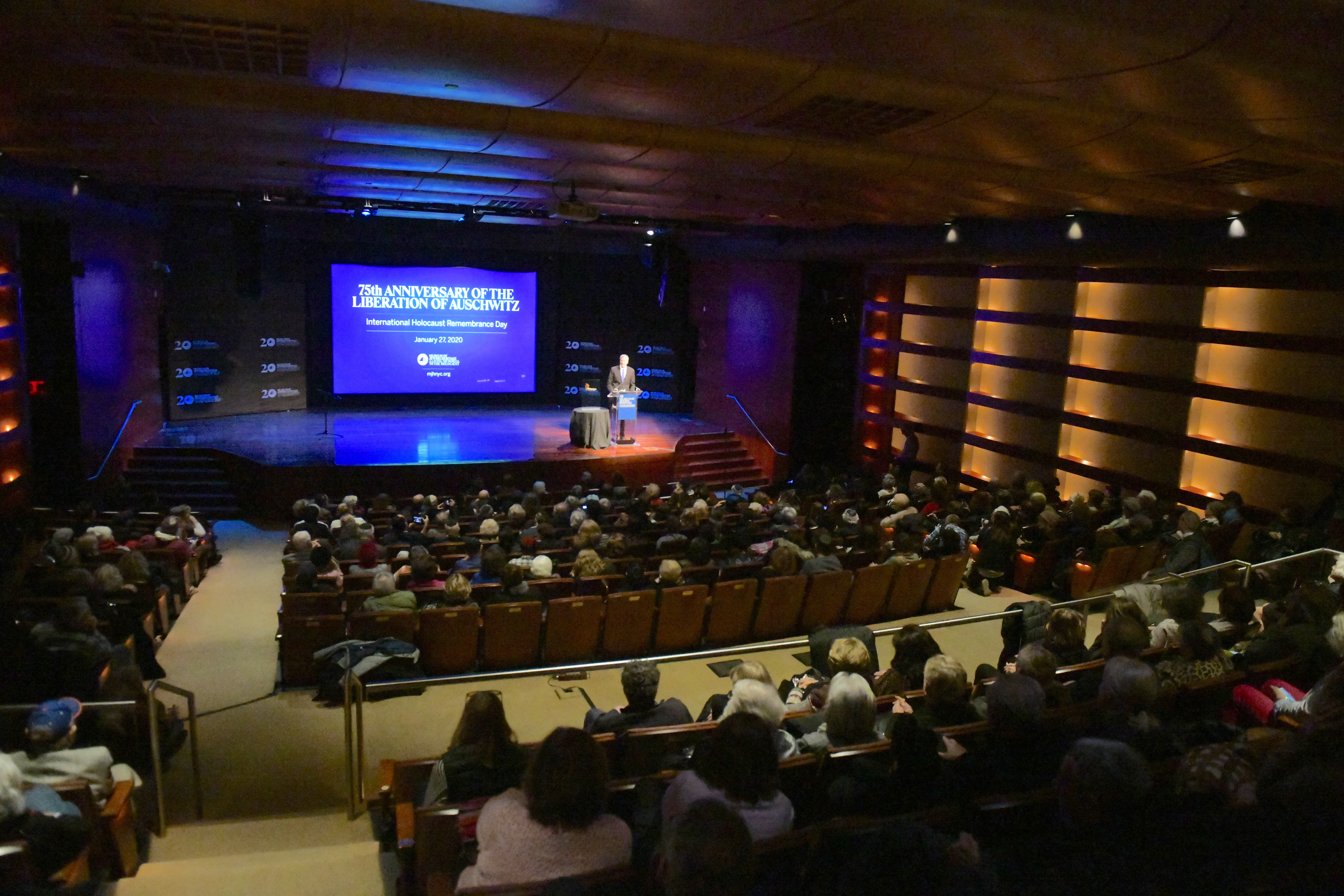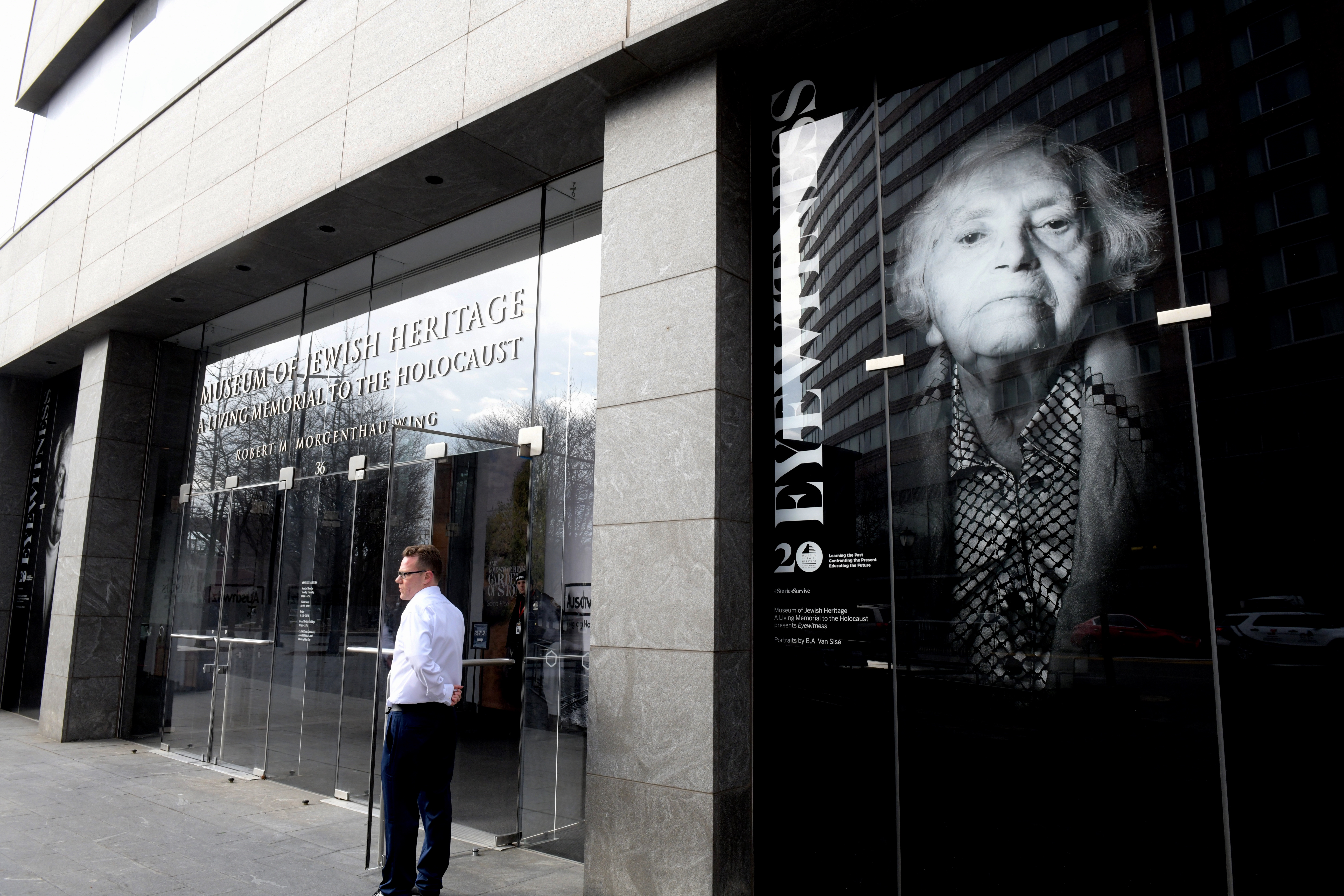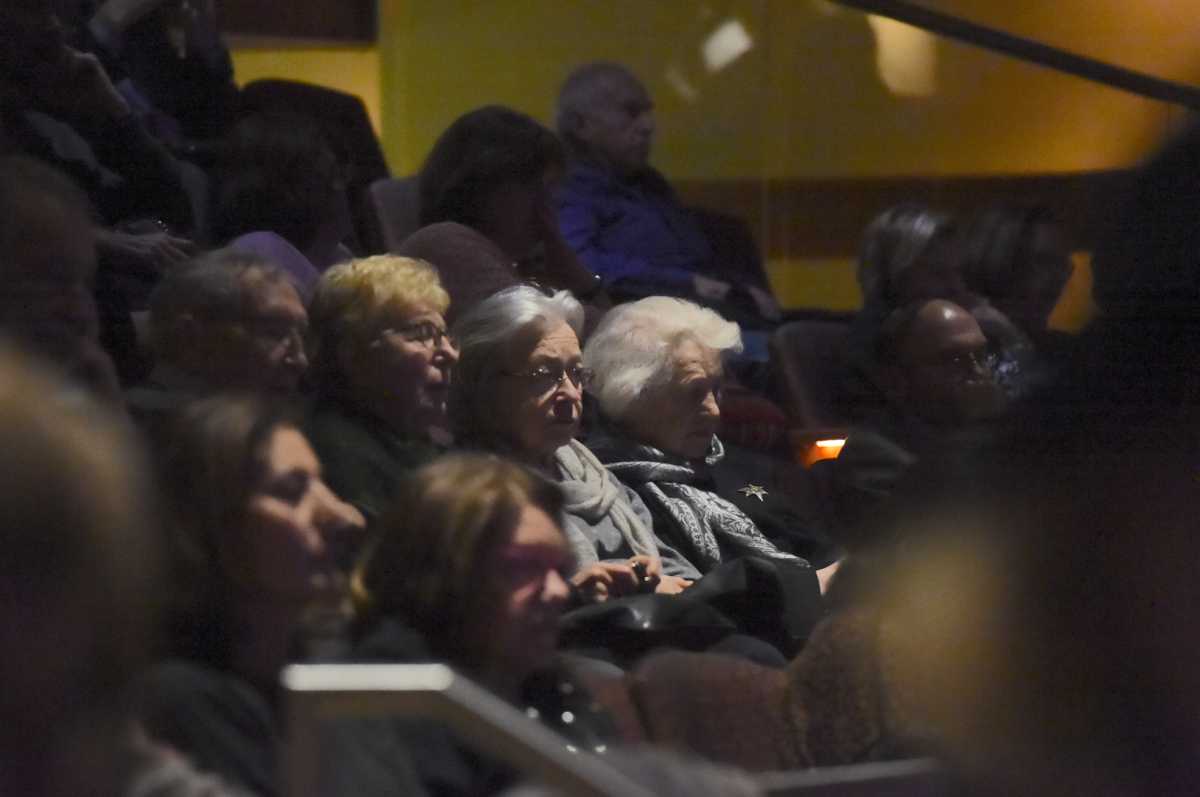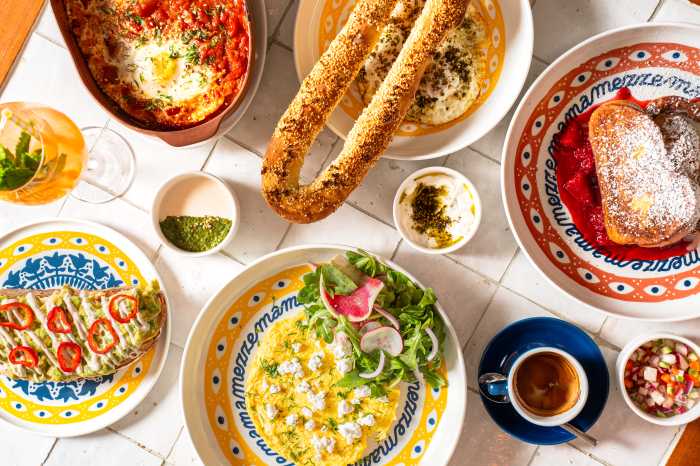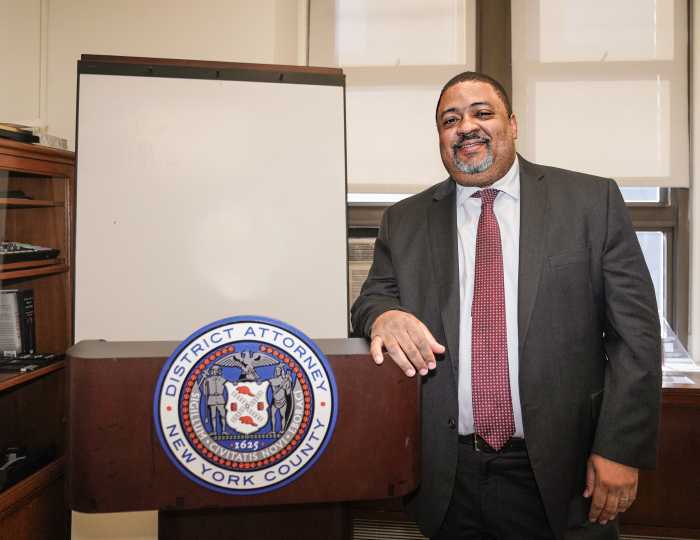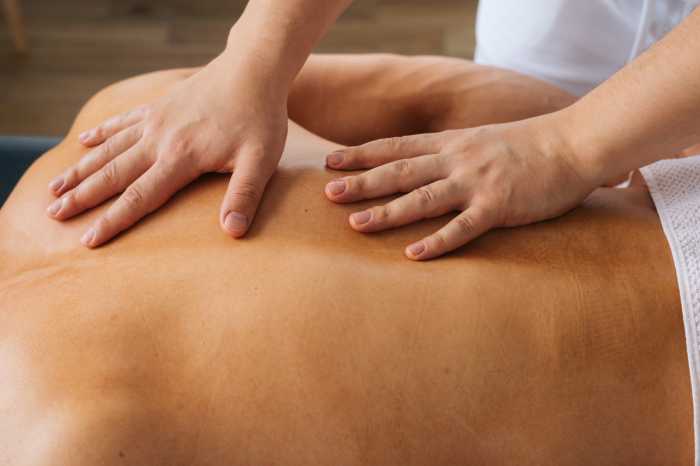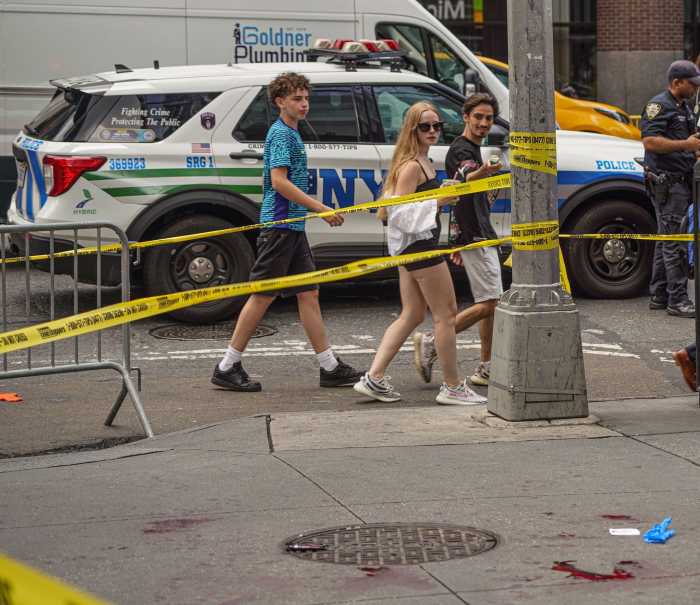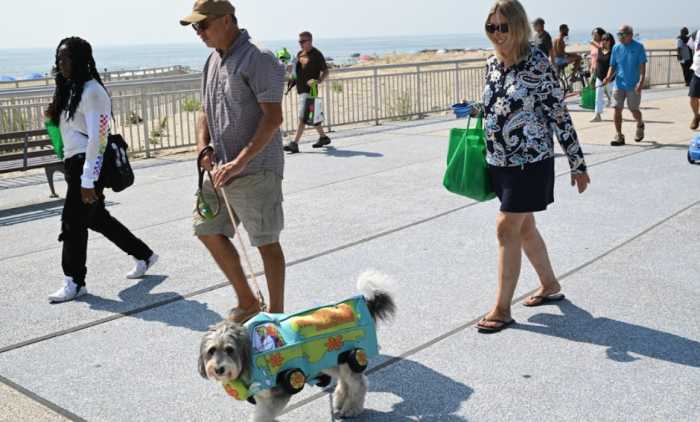As the world marked the 75th anniversary of the liberation of Auschwitz on Monday, Holocaust survivors and historians gathered at Manhattan’s Museum of Jewish Heritage and offered a single message: “Never be silent in the face of racism and anti-Semitism.”
Several hundred Holocaust survivors and close family attended a live streaming of the anniversary commemoration held at the death camp in Poland, where they listened to survivors who somehow lived to tell their story. But fresh on the minds of many has been the resurgence of bigotry locally and internationally — and a pressing need to stamp it out.
Ronald Lauder of the Estee Lauder cosmetics empire, one of the main speakers at the Auschwitz event, said millions of Jews sought safety in other countries, but were turned away, including those trying to reach the United States.
“They simply didn’t want any more Jews, and Hitler tested the world, and he found the world didn’t care enough. That’s when he knew he could build factories of death,” Lauder said.
Lauder was especially angry that anti-Semitism has risen in this country.
“Nobody in their right mind would be associated with the Nazis, but we have the spread of anti-Jewish hatred because some people think the Jews have to much power, too much control,” Lauder said. “Now there is a fixation with Israel, part of a 2,000 year old dream, and the only place Jews can go and be welcome. But now we have people who oppose the Jewish state and so anti-Zionism is really anti-Semitism. Hatred of all forms must not be tolerated.”
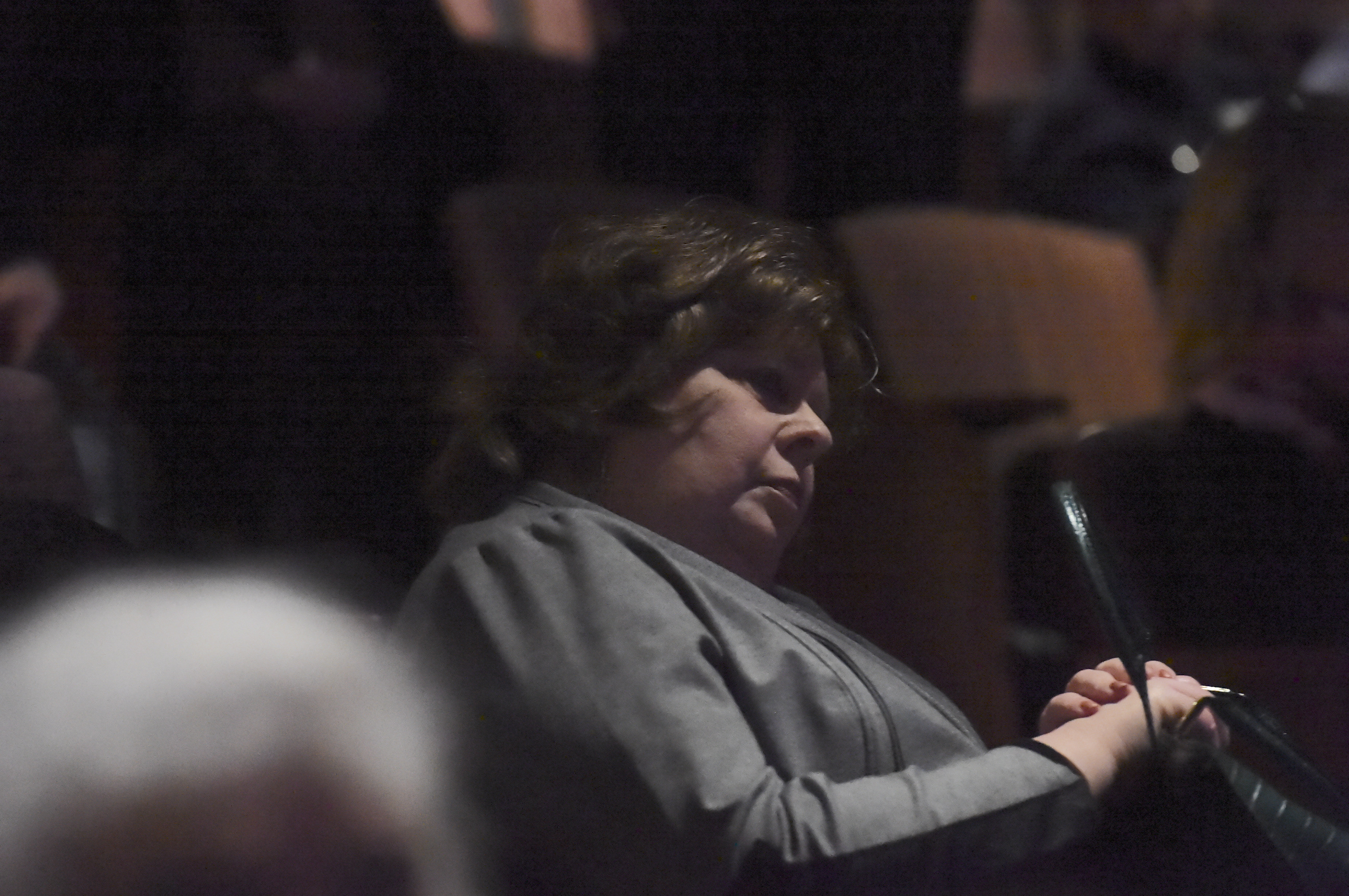
Mayor Bill de Blasio, the keynote speaker for the event after the livestream, remembered his visit to Yad Vashem, the Holocaust museum in Israel.
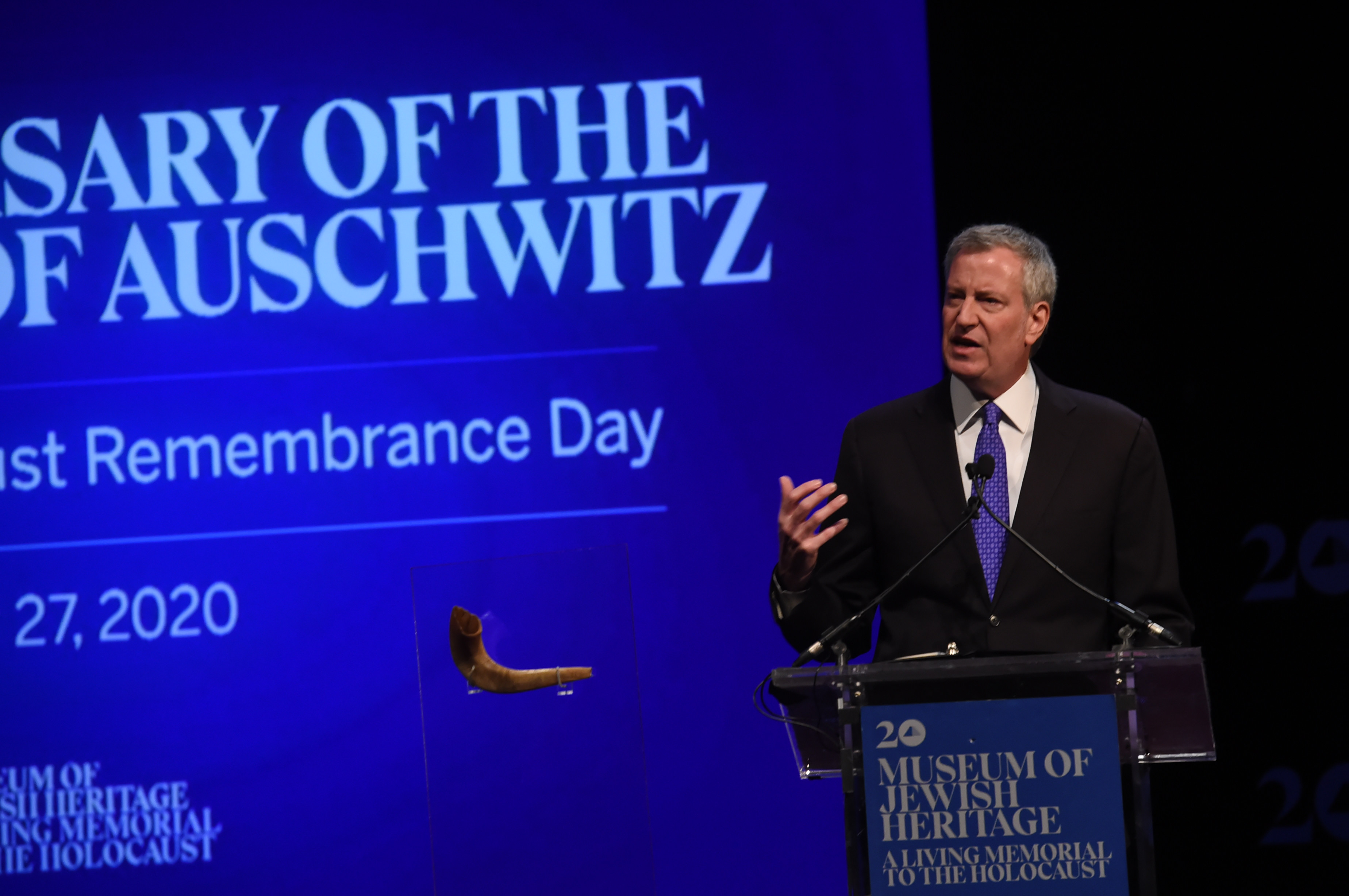
“You are left with a painful, cold feeling, and you realize that so many people should’ve stepped up and did not,” de Blasio said. “Some people did amazing things to help the Jews, but the sad truth is that most were silent and stayed quiet.”
The mayor was quick to blast racism, and noted that anti-Semitism still spreads throughout the world, including in the New York City area.
“Those who commit acts of hate and turn to violence, they must feel the consequences of their action,” said de Blasio, who promised to inject more police protection for Jewish communities while also increasing education to young children, including offering field trips to the Museum of Jewish Heritage to them learn about the Holocaust.
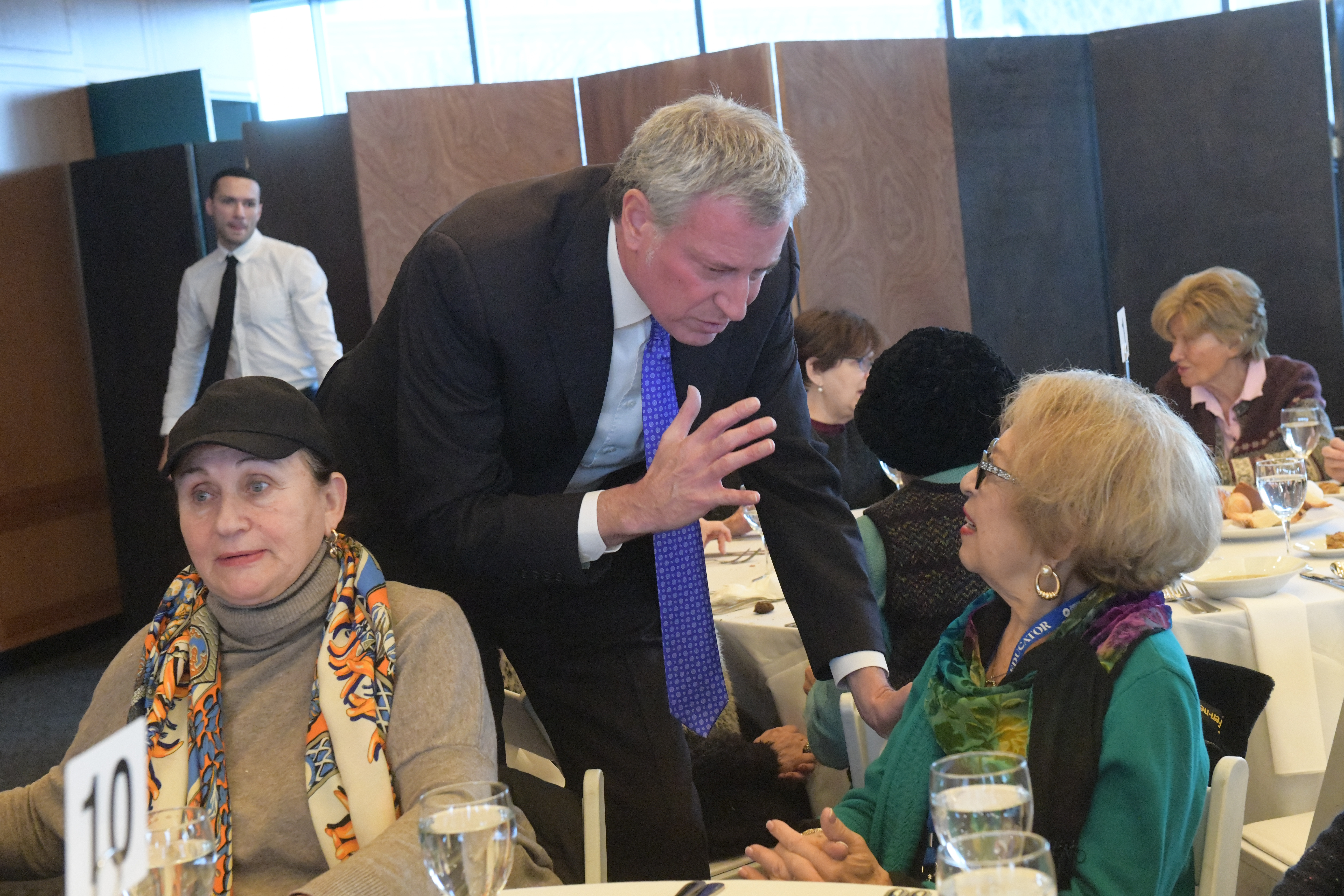
Lillian Feintuch was 7 when she was taken to the border of Auschwitz, but instead were taken to a forced labor camp in Austria — which “wasn’t a killing place.” She said her mother was able to stay with them, while her father was kept in slave labor.
“My mother was would say, ‘remember children that this happened,” Feintuch recalled. “This is how it started in Europe with anti-Semitism and the only way to deal with at that is to punish those people severely and how the world what you get when you act that way.”
Her friend, Shaindy Lowey, was 16 months old in a Budapest ghetto where her father was one of 11 children, but he was the only survivor.
“I was in a ghetto and we were starving, I was so weak that I didn’t even start to walk until I was 4 1/2,” she recalled. “Thank God my sister and I survived, but my husband’s brother and all our grandparents were in Auschwitz and so many were killed.”
Her message was that anti-Semitism cannot be accepted.
“My daughter is a speech therapist, and a seventh-grader she was working with said to her ‘I hate Jews,’ so my daughter asked him why,” Lowey continued. “He told her that Jews are ‘terrible people.’ She then told him she was Jewish and he replied, ‘you can’t be, you are not a terrible person’. Yet he said this without actually having met a Jew before.”
At the end of the ceremony, Rabbi Levi Babash blew the same shofar that was blown on the High Jewish holidays in Auschwitz.
While Holocaust survivors took part in the event, some talked with children and groups from schools in the museum according to museum officials. Isabel Santiago, an eighth-grader from Staten Island, said the museum was a “very personal experience.”
“I feel like there is a lot of personal stories — you see numbers and statistics, you go on news and see 8 percent of this, but here you see shoe from little boy who expected to come back, individual stories from many of the six million who died and those effected,” Santiago said. “You hear everything here, so seeing numbers kind of devalues what happened, but when see actual faces of people, it becomes real. These are the faces behind the story.”
As for anti-Semitism, she and her classmates agreed that it was wrong.
“I feel like it’s just so dumb. Why do we have to hate people? I just don’t understand,” Santiago said.
